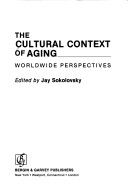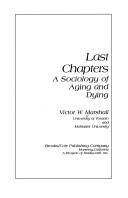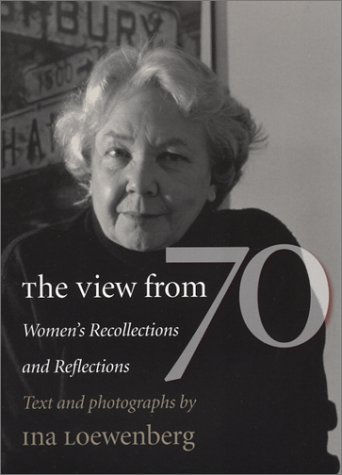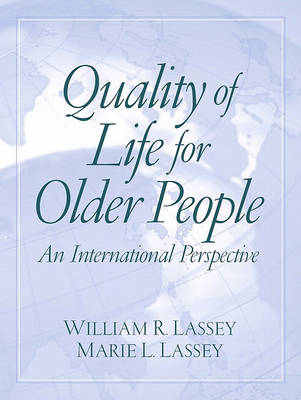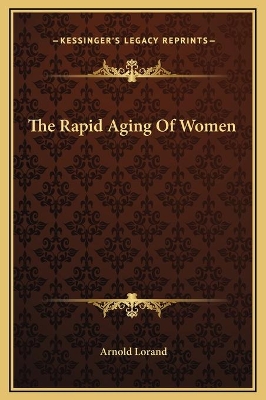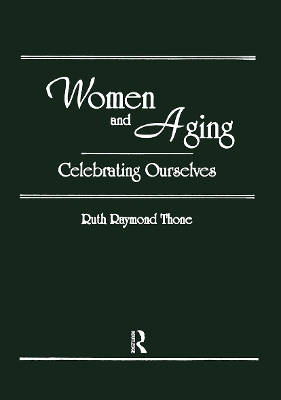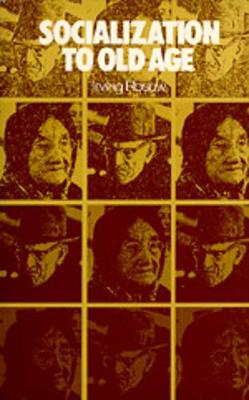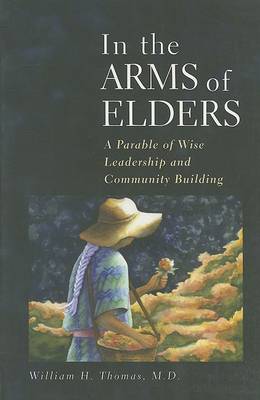This collection of essays and specially commissioned articles uses the concept of culture to explore the parameters of aging and being old in a worldwide context. Its aim is to examine two broad interrelated facets of later life--how older adults function as social actors in diverse societies, and how the context of a culture creates a varied interpretation of what aging means. Containing both specific case studies and broader analytical articles, the volume focuses on the multitude of cultural...
The New Politics of Old Age Policy
As the average age of the U.S. population continues to increase, age-related policies have come under intense scrutiny, sparking heated debates. In the past, older people were seen as a frail, dependent population, but major policies enacted or expanded on their behalf have made them major players in electoral and interest-group politics. This thoroughly revised and updated edition of Robert B. Hudson's The New Politics of Old Age Policy not only explains the politics behind the country's age-ba...
Last Chapters, a Sociology of Aging and Dying (Core Books in Psychology)
by Victor W Marshall
Quality of Life for Older People
by William R Lassey and Marie L Lassey
Basic text for gerontology courses taught in departments of sociology, social work, nursing, public health, medicine, psychology, health services administration, human development, human ecology.The text integrates and expands knowledge about optimal aging and quality of life in the United States-and other economically advanced nations, Issues, policies, programs, and achievements positively impacting older people are examined for each country.
Wie steht die Medizin zum Tod? Wie hat sich dieses Verhaltnis uber die Jahrhunderte hinweg verandert? Daniel Schafer zeichnet die spannende Geschichte einer langen Annaherung nach. Sein Buch ist im Kern medizinhistorisch, entfaltet aber mit vielfaltigen Bezugen zu Kulturgeschichte, Literatur, Ethnologie, Archaologie und Kunstgeschichte ein breites Panorama. Der zeitliche Bogen reicht von der klassischen Antike bis ins 21. Jahrhundert, der Schwerpunkt liegt auf der europaischen Gedankenwelt. Im...
Let's face it: almost everyone fears growing older. We worry about losing our looks, our health, our jobs, our self-esteem - and being supplanted in work and love by younger people. It feels like the natural, inevitable consequence of the passing years, but what if it's not? What if nearly everything that we think of as the 'natural' process of aging is anything but? In "Agewise", renowned cultural critic Margaret Morganroth Gullette reveals that much of what we dread about aging is actually the...
From Betty White to Toni Morrison, we're surrounded by examples of women working well past the traditional retirement age. In fact, the fastest growing segment of the workforce is women age sixty-five and older. Women Still at Work tells the everyday stories of hard-working women and the reasons they're still on the job, with a focus on women in the professional workforce. The book is filled with profiles of real women, working in settings from academia to drug and alcohol rehabilitation centers...
Women and Aging
by Ellen Cole, Esther D. Rothblum, and Ruth Raymond Thone
In our youth-oriented, patriarchal society, aging and older women often find themselves either ignored, pitied, or feared. Women and Aging is a valuable guide to help women break through the negative stereotypes of old age and find personal fulfillment through the stages of maturity. Full of warmth and support, Women and Aging strongly enables women to take and remain in control of their lives instead of passively letting others make life-changing--and possibly harmful--decisions for them. This...
Die Themen der Sucht und des Alter(n)s sind in unserer heutigen, nach Jugend und Gesundheit strebenden Gesellschaft weitgehend tabuisiert. Dennoch leben wir in einer alternden Bevölkerungsstruktur, in der der Umgang mit Suchtmitteln häufig früh erlernt und als Hilfsmittel zur Befindlichkeitsregulierung eingesetzt wird. Die vorliegende Arbeit beschäftigt sich mit dem Themengebiet der Sucht im Alter und mit Möglichkeiten der Intervention aus der Perspektive der Sozialen Arbeit. Neben der Erläuteru...
Living Arrangements and Social Networks of Older Adults in the Netherlands
by C.P.M. Knipscheer
The prevailing wisdom in gerontology is that people routinely adjust to old age just as they adjust to earlier life stages. But aging presents unusual circumstances, and the transition processes that typify earlier passages fail to operate in the customary way. The reasons for this are the subject of this book. Its basic thesis is clear: unlike other status changes in American life, people are not effectively socialized to old age. Irving Rosow shows that there is virtually no role for the e...
The Expressive Lives of Elders (Material Vernaculars)
Can traditional arts improve an older adult's quality of life? Are arts interventions more effective when they align with an elder's cultural identity? In The Expressive Lives of Elders, Jon Kay and contributors from a diverse range of public institutions argue that such mediations work best when they are culturally, socially, and personally relevant to the participants. From quilting and canning to weaving and woodworking, this book explores the role of traditional arts and folklore in the li...
